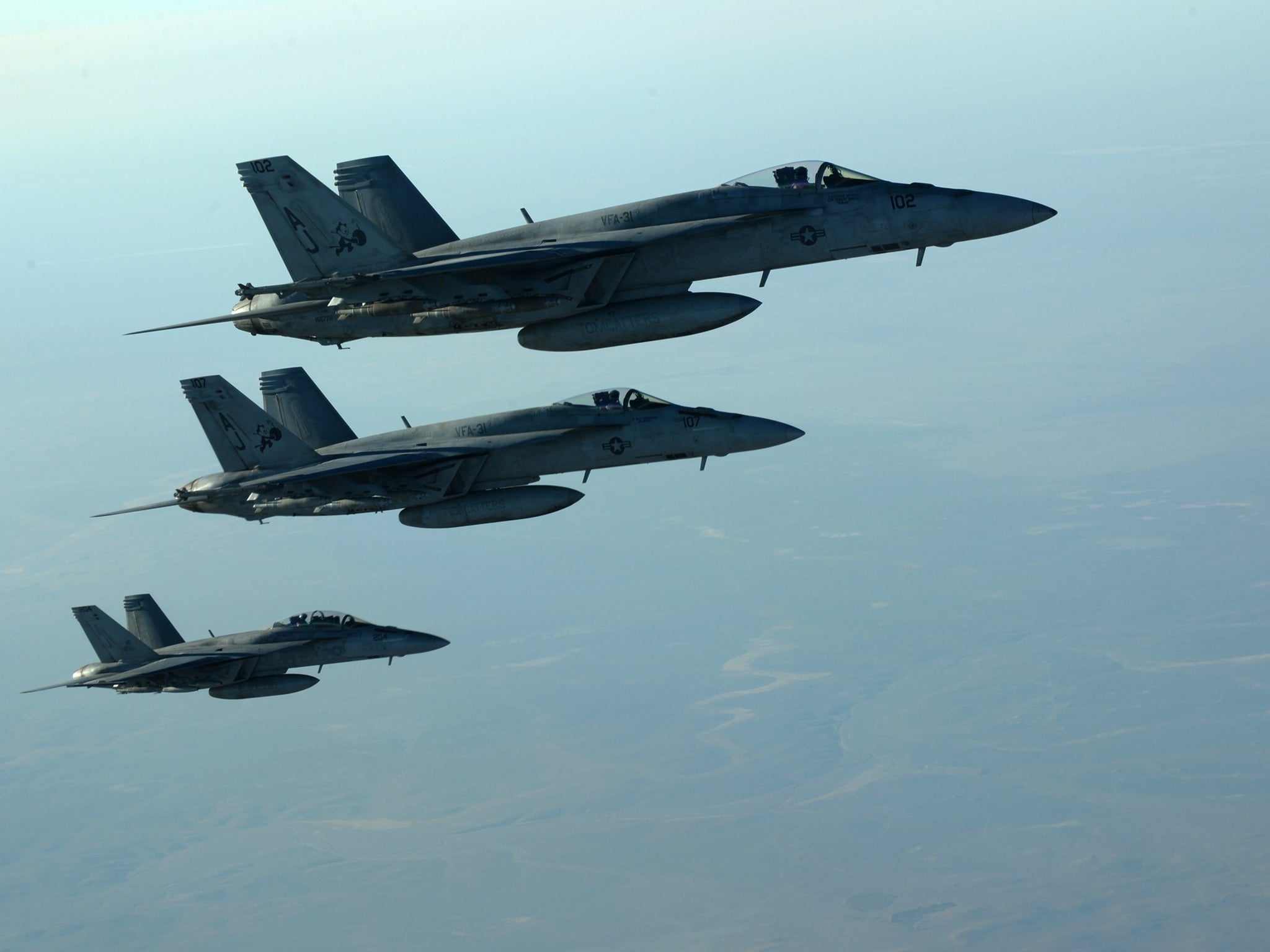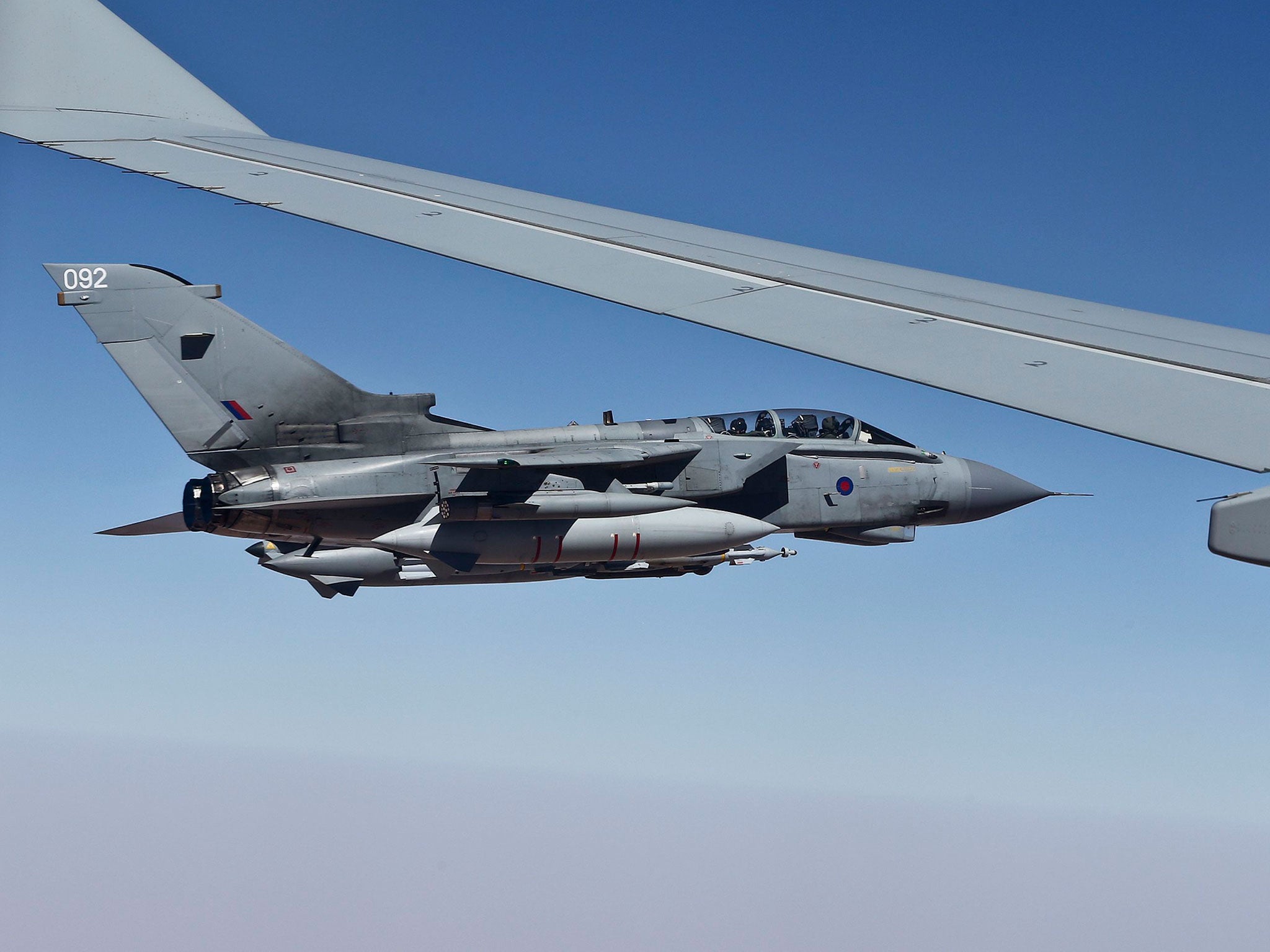Syrian air-strikes: Does the US have the foggiest idea who their enemy is?
America's bombing of Jabhat al-Nusra has raised significant concerns over their strategy


The fog of war has been a recurrent theme through time, the confusion and misapprehension that comes amid the clamour and fury of combat. Even in these early days of the war against Isis, the fog appears to be descending fast with no clear strategy in view and a moving gallery of enemies.
Barack Obama admits that his administration underestimated the threat posed by Isis and overestimated the capabilities of the Iraqi military. This is surprising; the rise to dominance of the Islamist group in Syria, and the damage done by former Prime Minister Nouri al-Maliki to his country’s forces through sectarian policies had been extensively charted by the media.
The real confusion began when the campaign moved on to Syria, a necessary step. Instead of just attacking Isis, the US also bombed Jabhat al-Nusra, affiliated to al-Qaeda but which had fought against Isis and was loosely allied with the “moderate” rebels whom the West is sponsoring.
Just before the attack, there was a slew of media reports in the US about a group called Khorasan, linked to al-Nusra, and accounts of how it was more dangerous and extreme than Isis, which, we had already been told, was more dangerous and extreme than al-Qaeda. Not just that, but there was an imminent plot by Khorasan’s master bomb-makers to bring down airliners.
Some of us who have spent time with the rebels inside Syria were caught on the hop, we had not even heard of Khorasan, apart from as an historic name for a caliphate in south-central Asia. “This just shows how much out of touch we are, we need to get back in there,” a colleague from another newspaper pointed out gloomily. It is the case that recent international reporting from Syria has been from those who had gone in with the regime; coverage of opposition areas has dropped dramatically after a spate of kidnappings of journalists. The murder of our friend Jim Foley is still vivid in the minds of many of us.
But could it be that we have not heard of Khorasan because it does not exist, certainly under that name? And, furthermore, there was no attack imminent?
Andrew McCarthy, a former US federal terrorism prosecutor was blunt in the National Review magazine: “You haven’t heard of the Khorasan group because there isn’t one. It is a name the administration came up with calculating that Khorasan had sufficient connection to jihadist lore [so] that no one would call the President on it.”
Aki Peritz, a former CIA counterterrorism specialist told Time magazine: “I had never heard of this group while working for the CIA”.
Rear Admiral John Kirby, the Pentagon spokesman, wanted to counter those who quibbled about the imminence of an attack. “I don’t know that we can pin that down to a day or month or week or six months. We can have this debate about whether it was too soon or too late… We hit them, and I don’t think we need to throw up a dossier to prove that these are bad dudes.”

One theory is that US officials “revealed” Khorasan to justify bombing al-Nusra, knowing the sensitivities this entailed. If that was the aim, it has not worked; al-Nusra and Isis are holding meetings to coordinate vengeance attacks. And the attack on “Khorasan” will make supposed ground operations by the Peshmerga, what’s left of the Free Syrian Army and friendly Arab states, accompanying the air strikes, that much more difficult.
Join our commenting forum
Join thought-provoking conversations, follow other Independent readers and see their replies
Comments
Bookmark popover
Removed from bookmarks